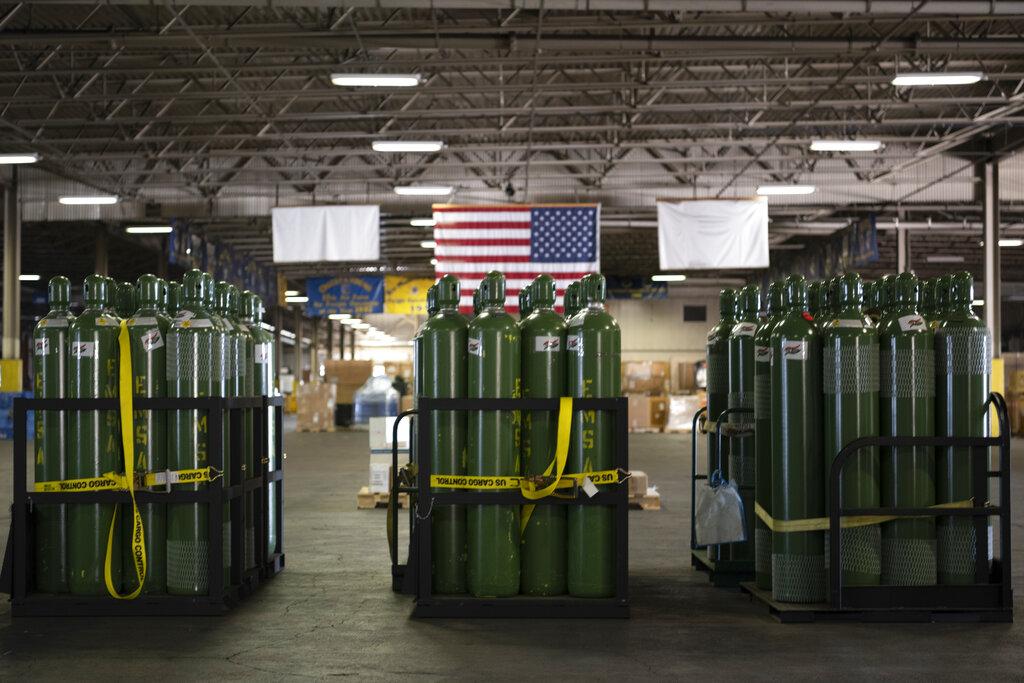
WASHINGTON (AP) — The U.S. will restrict travel from India starting May 4, the White House said Friday, citing a devastating rise in COVID-19 cases in the country and the emergence of potentially dangerous variants of the coronavirus.
White House press secretary Jen Psaki said President Joe Biden’s administration made the determination on the advice of the Centers for Disease Control and Prevention.
“The policy will be implemented in light of extraordinarily high COVID-19 caseloads and multiple variants circulating in India,” she said.
With 386,452 new cases, India now has reported more than 18.7 million since the pandemic began, second only to the United States. The Health Ministry on Friday also reported 3,498 deaths in the last 24 hours, bringing the total to 208,330. Experts believe both figures are an undercount, but it’s unclear by how much.
The U.S. action comes days after Biden spoke with Indian Prime Minister Narendra Modi about the growing health crisis and pledged to immediately send assistance. The U.S. has already moved to send therapeutics, rapid virus tests and oxygen to India, along with some materials needed for that country to boost its domestic production of COVID-19 vaccines. Additionally, a CDC team of public health experts was expected to soon be on the ground in India to help health officials there move to slow the spread of the virus.
The White House waited on the CDC recommendation before moving to restrict travel, noting that the U.S. already requires negative tests and quarantines for all international travelers. Other restrictions are in place on travel from China, Iran, the European Union, the United Kingdom, the Republic of Ireland, Brazil and South Africa, which are or have been hotspots for the coronavirus.
There was no immediate comment on the new limits from the State Department, which on Thursday reissued a warning to Americans against traveling to India and said those already in the country should consider leaving by commercial means. That warning was accompanied by a notice that the department was telling the families of all U.S. government employees at its embassy in New Delhi and four consulates in India that they could leave the country at government expense.
U.S. diplomatic facilities in India have not been immune from the pandemic and a handful of local staff have perished from the virus. Several dozen other local and U.S. staffers have been sickened by COVID-19, according to the officials who were not authorized to discuss personal matters publicly and spoke on condition of anonymity. The State Department has declined to comment on the number of staff affected, citing security and privacy concerns.
But even as the U.S. boosts pandemic assistance to India and allows some of its diplomatic families to come home, other aspects of the relationship continue unhampered.
Just minutes after the White House released the new travel restrictions, the State Department said it had approved more than $2.4 billion in arms sales to the country, which the U.S. believes will be a critical counterbalance to China in the Indo-Pacific region.
The sale includes six Boeing P-8I patrol aircraft and related technology to be used for surveillance. The department said the deal “will support the foreign policy and national security of the United States by helping to strengthen the U.S.-Indian strategic relationship and to improve the security of a major defensive partner, which continues to be an important force for political stability, peace, and economic progress in the Indo-Pacific and South Asia region.”
The remainder of this article is available in its entirety at CBN